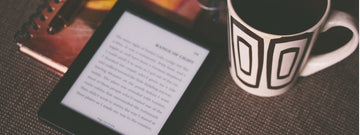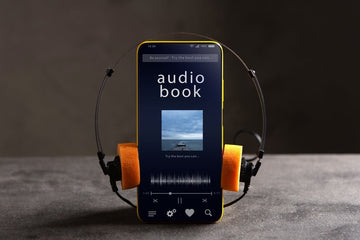
99% of people who read a book before seeing it adapted through film would argue that the book was better than the movie version.
Perhaps it is a power of suggestion, giving people a bias to what they consumed first. Then again, perhaps not.
So...
Are books better than movies?
The experience of reading a book is almost always better than watching a film. Mainly, this is because the narrative of the book not only provides better nuance and context. More importantly, no movie can rival the scope of one’s imagination.
What is wrong with watching book adaptations?
Book adaptations are very popular, with the popularity always growing.
In fact, in 2018 the Publishers Association commissioned research that found that movies based on books earn 53% more revenue worldwide than those films that are based on original screenplays.
But book adaptations are a far cry from the experience that one gets from reading the book itself.
One area in which book adaptations nearly always fail to surpass books is in terms of character development. Books put the reader in the minds of the protagonists, antagonists, and supporting characters.
The reader gets a sense of the character’s intentions and why he or she is taking the actions they are. Such in-depth character analysis would dramatically slow down a film and is therefore rarely concentrated on in movies.
Books present the opportunity to really get to know the characters, often providing backstories essential to understanding the character's motives.
A movie’s time constraints can leave the viewer confused about the characters’ reasons for doing the things they do during the story. Book adaptations done for television often alter the message and direction of the story. Sometimes to the point that the story on the screen hardly resembles the book’s plot at all.
Movies are typically confined to a 2-hour block, and that is a huge limitation on how much storytelling can actually be portrayed. This causes films to make cuts and sacrifices, often at the expense of essential story arcs, certain characters, secondary scenes, and sadly, sometimes to the logic and continuity of the story.
Book adaptations that succeed at the box office, trigger sequels from studios looking to cash in on the business-based success. These sequels are often supplemental to the book and have a noticeable downturn in the story as it is no longer book based.
Pssst! No time for reading? Click here to reveal how to read a whole book in 15 minutes!
Sometimes, as has recently occurred with Game of Thrones, the show supersedes the book series and takes the viewers into uncharted storytelling which leads to wide-range disappointment and criticism.
Why are books better than movies?
Thomas Leitch might have said it best: “The book will always be better than any adaptation because it is always better at being itself.” With the book being the original source of material, it holds a better grasp on the story it wants to tell.
An adaptation is nearly always impossible to translate into a visual.
After all, it is challenging to relay to the screen because it is just one or multiple people’s combined to take on the story of the book. Meanwhile, multiple people can read the same book and come out with vastly different experiences, taking away entirely different messages, and envisioning the events in their mind’s eyes with vast differences. A film presents the story as the creators' interpretation only.
As noted earlier, books have the advantage of affording reader knowledge of the character's backstory, thoughts, and intentions. Books can and very often save the best reveals for when they are ready to unveil them.
Adaptations can be hard to begin without certain clarifications not meant for the reader to know. For instance, the TV adaptation of “His Dark Materials” gives away the big reveal from the book’s end in a simple line of text even before the first scene.
Books have the obvious advantage of world-building as well. A book can take its time to gradually introduce the geography and ‘rules’ of the world, while a film or TV adaptation often cannot take the time to do so. This results in the viewer being simply dumped into a world and the onus is on them to figure out the way this particular world works.
What can movies do that books can’t?
While books are clearly better most of the time than adaptations, there are a few advantages that they can call their own.
One advantage lies in action sequences which can span for entire chapters in a book but can be done in a tight, intense, and exciting manner in a visual adaptation inside of a minute.
While reading something of this sort can be a bit dull to the reader who may want to get to the sequence’s result, films add to the excitement by dazzling viewers with action, speed, and special effects that add to the magnitude of the sequence.
Similarly, books tend towards being descriptive. This isn’t a bad thing when dealing with world-building, backstories, or the explanation of geography or topography for the sake of storytelling clarity.
Oftentimes the descriptions drag the pace of the book way down. George RR Martin is infamous for taking several pages describing royal feasts, for example, an aspect many of his most diehard followers often struggle to get through.
Another commonly understated area of film adaptations is that it can bring words on a page to life. This is especially relevant when it involves young readers.
A child can read a book but it can take on a whole new meaning as they visually see things that their imaginations may not yet be capable of affording them.
Should you always choose books over their adaptations?
For those looking to get the most fulfilling experience from the story being told, choosing a book always wins out over a story adaptation.
For those looking for just a short immersive experience, that may not be the case.
It all goes back to the viewer’s intent. Simply put, if a person is looking to get the most out of a story, it can only be provided by the original source material.
There are far fewer examples of how an adaptation can fail the book than the film adaptation of Stephen King’s magnum opus “The Dark Tower.” The movie attempted to ludicrously condense what the producers thought was the key part of the story into about 90 minutes. That's 8 world-hopping, multi-dozen character tomes, into about an hour and a half.
Needless to say, those who did not read the books failed to see the appeal of the story by just watching the film.
Sometimes adaptations bring the books to life in a great way, even if they cut things and change things around somewhat.
The Lord of The Rings and Hobbit trilogies are great examples of movies that arguably lived up to the source material of the book, providing an extended, immersive experience of the at times droning parts of the lengthy novels.
What movies are better than their books?
So if reading the book is nearly always better, are there movie adaptations that are better than their books? Actually, there are a good number of those instances as well!
- Much of the movie quality has to do with casting and the adapted screenplay of course, but movies such as “The Hunger Games” put a visual face on a wild ride of a book.
- Seeing the shark in Jaws made the gritty leviathan’s tale much more real, arguably setting a new generation of how horror was portrayed in cinema.
- In some cases, the writer’s style is not suited for all readers. Such was the case with “No Country For Old Men” where Cormac McCarthy unleashed a very odd, grammar-rule destroying narrative on his book’s pages. The film adaptation however appealed to many people with the fantastic performances by Tommy Lee Jones and Javier Bardem.
- One of the best examples of a film outdoing it's literary predecessor is Alfred Hitchcock's “Psycho.” Whereas the book humanized Norman Bates and the legendary shower murder was but a line in the text, the film’s stabbing scene is one of the most iconic pieces of cinema of all time.
So, reading books or watching adaptations?
The answer goes to the intent of the reader or the viewer. If a reader is looking to get everything out of the story and live out the narrative in their own minds, the books are a clear choice. If one is not an avid reader and is simply looking for a quick escape, the adaptation might suit them best.
But for a reader expecting to get the most value-filled experience from a film adaptation before reading the book, the choice of reading a book is clear. Of course, this does not need to be a choice at all, more of the order in which it is done.
It can be argued that if one enjoys the adaptation, the book can supplement the experience. If one enjoys the book, they may balk at the changes and omissions in the adaptation, but at least they will better understand the characters, the direction, and the storyline.





